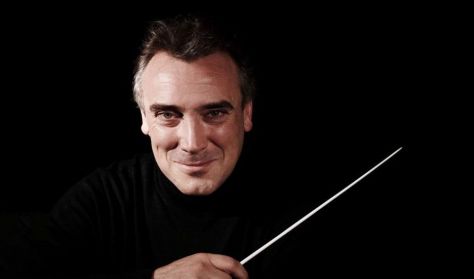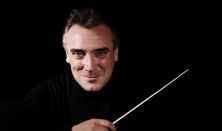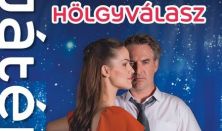Program
MAURICE RAVELBIO: LE TOMBEAU DE COUPERIN (THE GRAVE OF COUPERIN)
ERNŐ DOHNÁNYIBIO: VARIATIONS ON A NURSERY SONG, OP. 25
INTERVAL
FELIX MENDELSSOHN-BARTHOLDYBIO: SYMPHONY NO. 5 IN D MAJOR (“REFORMATION”), OP. 107
Ravel pays tribute to friends who died in the war, Dohnányi highlights the childishly joyful side of classical musicians, Mendelssohn celebrates the Reformation with a symphony – there are exciting stories behind the music on the program. The concert will be conducted by Jaime Martín, a Spaniard who has been a leading conductor of major orchestras from Melbourne to Los Angeles, and whose “infectious enthusiasm for music finds its way to orchestra and audience alike”, according to a Telegraph reviewer. Ravel’s suite, Le Tombeau de Couperin is a tribute to baroque keyboard music, is followed by Dohnányi’s musical paraphrase of the song Twinkle, twinkle little star, full of musical humor. The soloist of the latter is one of the most sought-after pianists of the world, the Kossuth Prize winner Dénes Várjon. After the interval, the orchestra performs the grandiose Reformation Symphony by the twenty-one-year-old Mendelssohn.
In Le Tombeau de Couperin, Ravel combines innovative sounds with French Baroque meticulousness. The movements are a tribute not only to the composer François Couperin and, through him, to the whole of French Baroque keyboard music, but also to the friends lost in the First World War. The author pays tribute to close military acquaintances, including a pair of brothers killed by a grenade. The mood of the piece is nostalgic rather than mournful. While composing the work, originally written for piano, Ravel immediately heard orchestral colors, especially the oboe, which became one of the main characters in the orchestrated version. The swirling prelude is followed by a lullaby-like forlane (Italian folk dance), a serene minuet, and a poignant rigaudon (French baroque dance).
“To the delight of friends of humor, to the annoyance of others” – says Ernő Dohnányi on the sheet music of his versions for children’s songs. This piano concerto-like work, composed in 1914, opens with a long and solemn orchestral introduction of almost Wagnerian depth. The piano’s entrance is the composer’s greatest musical prank, as the soloist responds to the monumental sound with the childlike simplicity of the theme from Twinkle, twinkle little star. In addition to the humor, we also hear brilliant orchestration, exciting harmonies and diverse stylistic parodies. Dohnányi composed eleven variations – including a waltz, a march and a chorale – and a complex, fugal finale from the children’s song.
Felix Mendelssohn was christened Bartholdy when he was seven years old. Having always been close to Protestantism, he studied Bach’s sacred works with passion. In 1830, a large-scale celebration was planned for the 300th anniversary of the Augsburg Confession, for which Mendelssohn envisioned a purely instrumental symphony instead of a liturgical choral work. The ceremony was cancelled, but the work was completed. The slow introduction of the opening movement is set by a six-note motive called the “Dresden Amen”, followed by a fast passage of Beethovenian power. After a lively scherzo and a slow movement reminiscent of a prayer or aria, the finale, based on the sounds of the famous chorale Ein feste Burg, is played without pause. The symphony ends with the triumph of these Lutheran voices.









